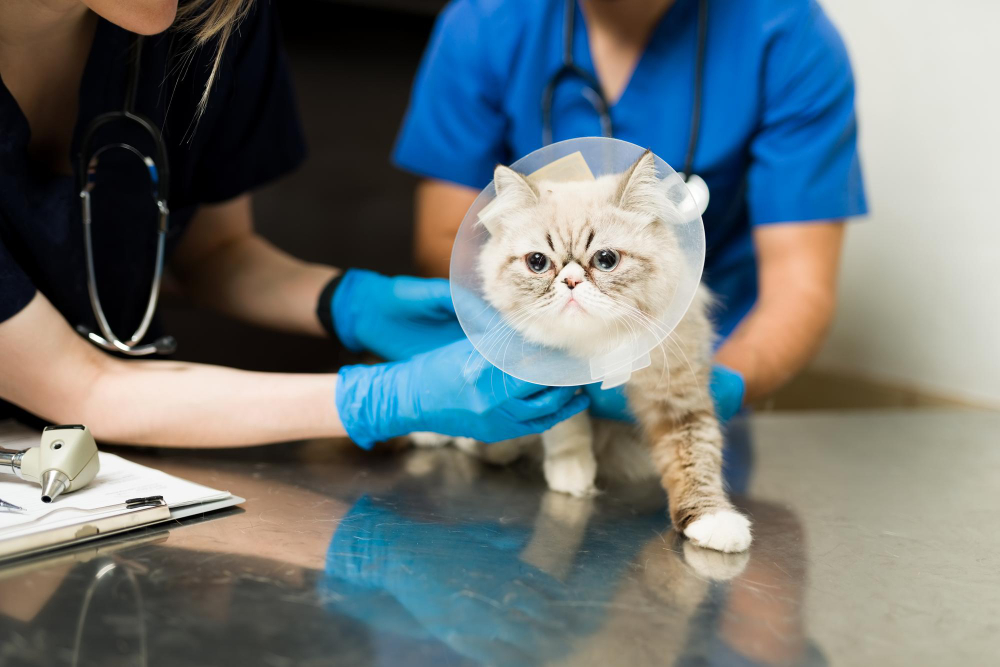Flea infestations are a common problem for cat owners, and it’s important to take proper measures to control and eliminate these pests. For nursing cats, effective flea treatment is crucial not only for the mother’s health, but also for the well-being of her vulnerable kittens. In this article, we will address some of the most commonly asked questions regarding flea treatment for nursing cats, including the use of Seresto collars, Frontline, and other options.
Flea Treatments and Nursing Cats: Can a Nursing Cat Wear a Seresto Collar?
Seresto collars are a popular choice for many cat owners due to their long-lasting, slow-release formula that provides effective flea and tick protection. However, it’s essential to consider the manufacturer’s recommendations before using a Seresto collar on a nursing cat. While the collar is generally considered safe for adult cats, the potential risks and benefits should be carefully weighed when it comes to nursing cats and their kittens.
Can I put flea treatment on a nursing cat?
Administering flea treatment to a nursing cat is important to ensure both her health and the health of her kittens. There are various types of flea treatments available, including spot-on treatments, oral medications, and flea collars. When deciding where to put flea treatment on a cat, consult the instructions provided by the manufacturer, and always consult with your veterinarian to ensure the chosen treatment is safe for your nursing cat and her kittens.
What flea treatment is safe for nursing cats?
There are several flea treatments specifically recommended for nursing cats. When choosing the right flea treatment, be sure to read the labels carefully, follow any precautions, and consult with your veterinarian. Some safe options for nursing cats include topical solutions that contain selamectin or imidacloprid, as well as oral medications like nitenpyram.
Can you put Frontline on a nursing cat?
Frontline is a popular flea treatment option for many cat owners. However, before using Frontline on a nursing cat, it’s essential to examine its safety and efficacy. According to the manufacturer and veterinary experts, Frontline is considered safe for use on nursing cats. Nevertheless, it’s crucial to follow the guidelines for proper application, monitor your cat for any adverse reactions, and consult with your veterinarian.
How to Know If a Kitten Has Fleas: Identifying and Addressing Flea Infestations in Kittens
Identifying a flea infestation in kittens is crucial for their health and well-being. To determine how to know if a kitten has fleas, look for signs such as excessive scratching, visible fleas or flea dirt (tiny black specks) on their fur, and potential hair loss or skin irritation. Regularly checking your kitten for fleas and addressing the issue promptly can prevent further complications such as anemia.
How Do House Cats Get Fleas, and Can You Get Fleas From Cats? Flea Infestations in House Cats and Preventing Flea Transmission
Indoor cats can still become infested with fleas, despite not having direct contact with the outdoors. Fleas can hitch a ride on your clothing, shoes, or other pets that go outside, thus finding their way into your home. How do house cats get fleas is an important question to consider, as it underscores the necessity of preventative measures for all cats, regardless of their indoor or outdoor status.
While it’s relatively uncommon, humans can also get fleas from their pets. To prevent flea transmission between your cat and yourself, regularly check your cat for fleas, treat any infestations promptly, and maintain a clean home environment.
When Can I Flea My Cat After Having Kittens? Flea Treatment Timing for Cats After Giving Birth
Administering flea treatment to a cat that has recently given birth is essential for the well-being of both the mother and her kittens. However, it’s crucial to determine the ideal time for treatment to avoid any potential harm to the nursing cat or her offspring. According to experts and manufacturers, flea treatment can generally be applied to a nursing cat as long as the product is labeled safe for use in such cases. It’s always best to consult with your veterinarian to establish the most appropriate time and treatment for your nursing cat.
It’s important to note that prevention is the best strategy when it comes to flea treatment for pregnant and nursing cats. By taking measures to prevent flea infestations before pregnancy and during lactation, cat owners can minimize the need for medication during these critical periods. Regular flea prevention, such as monthly treatments and environmental control, can help ensure that your cat and her kittens remain healthy and free from fleas throughout pregnancy and nursing.
Conclusion
Flea treatment for nursing cats is a vital aspect of their overall health and well-being, as well as the well-being of their kittens. By considering the safety and efficacy of various flea treatment options, including Seresto collars and Frontline, cat owners can make informed decisions that protect their nursing cats and their kittens from flea infestations. It’s essential to regularly check for fleas, treat infestations promptly, and consult with your veterinarian for personalized advice on flea treatment for your nursing cat. Remember that prevention is key, and by maintaining a clean environment and using appropriate flea treatments, you can ensure the health and happiness of your feline family.

